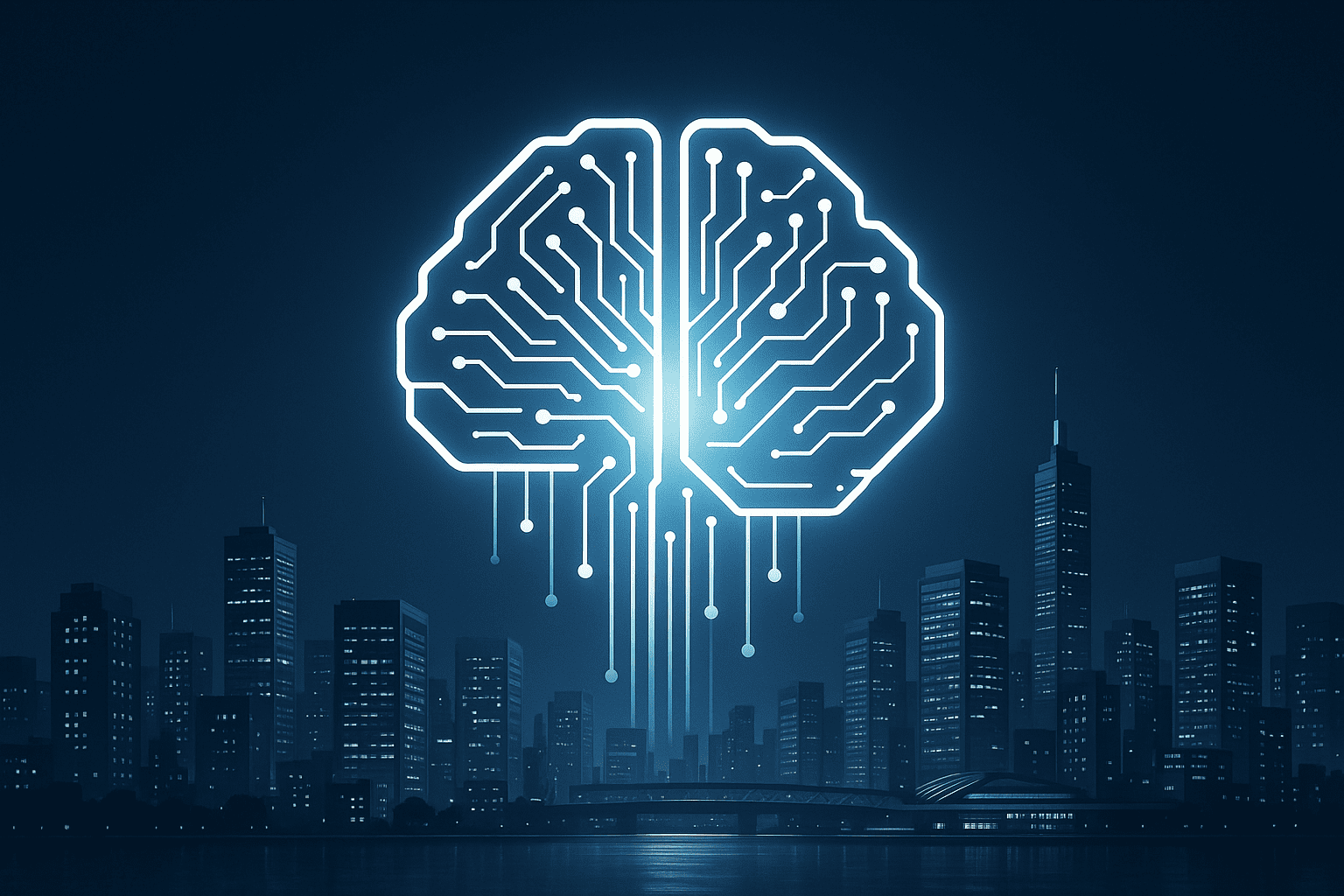
Wilton Rogers
August 27, 2025
Artificial Intelligence is no longer just about machines following rigid instructions. The new era is defined by Intelligent AI, systems capable of reasoning, adapting, and acting independently in complex environments. Unlike earlier tools that executed pre-programmed commands, this new wave of smart AI evolves with experience, making decisions that are not only faster but often more insightful than human judgment.
The influence of intelligent AI is already widespread. From groundbreaking healthcare discoveries to more efficient business operations, it is becoming a cornerstone of modern life. Yet with its growth come pressing questions about trust, governance, and human control. To fully understand the scope, we must look closely at what intelligent AI is, how it makes decisions, and the real-world transformations it drives.
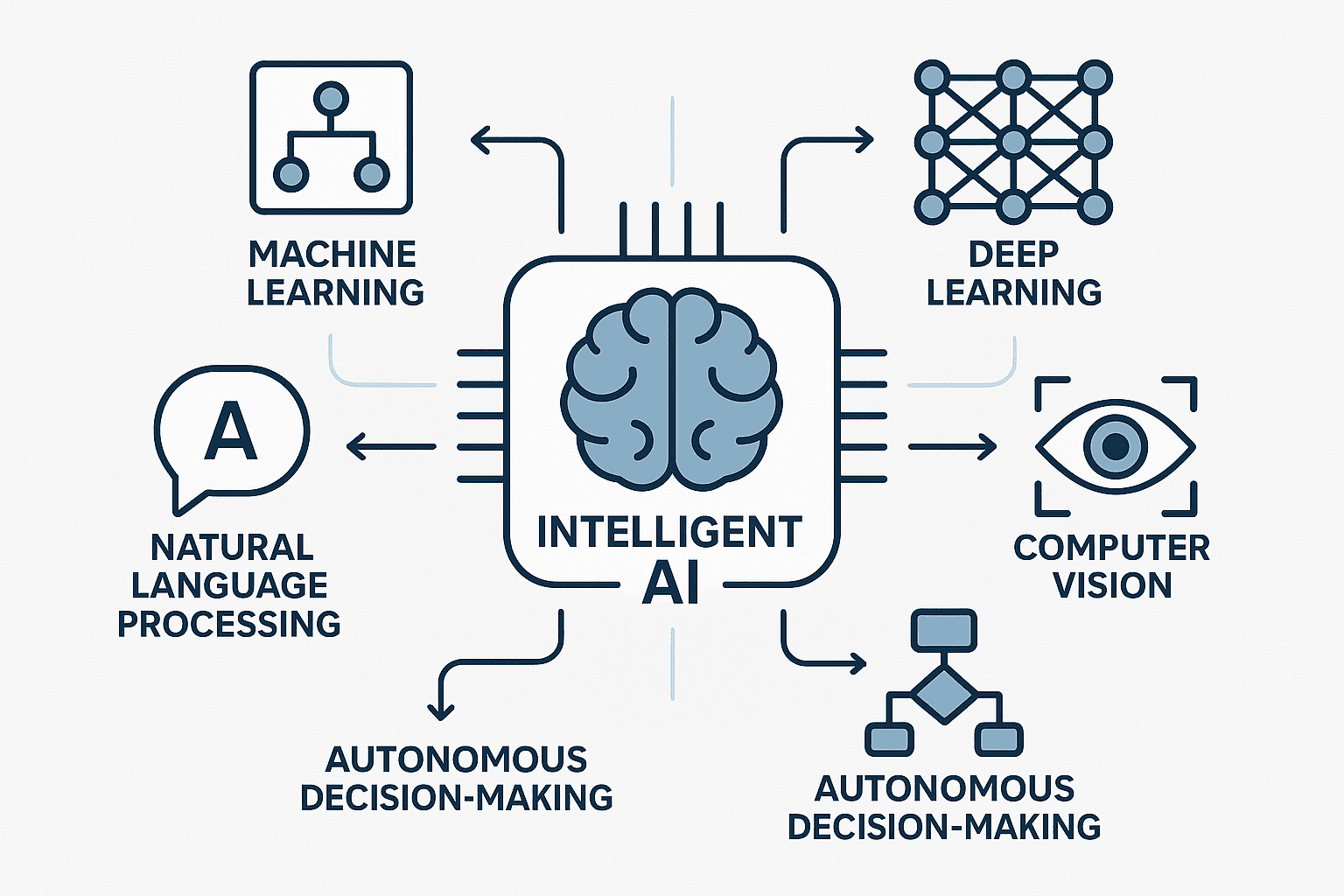
At its core, intelligent AI is the convergence of several advanced technologies. Machine learning and deep learning form the foundation, enabling systems to absorb patterns from vast datasets. Natural language processing allows them to understand and respond to human language. Computer vision gives them the ability to interpret visual data. Beyond these technical layers lies the defining factor: the ability to reason and act autonomously.
This is what sets intelligent AI apart from narrow tools like translation apps or spam filters. It functions more like an autonomous AI agent that can analyze, adapt, and take initiative across diverse tasks. Researchers often describe this as part of the agentic AI revolution, a leap from supportive copilots to fully adaptive AI systems capable of independently achieving goals in dynamic contexts.
The decision-making ability of intelligent AI depends on its ability to learn, recognize context, and act with autonomy. By processing enormous amounts of data, it detects patterns invisible to humans and refines its predictions with every interaction.
Unlike traditional algorithms, cognitive AI integrates reasoning into its process. For instance, a diagnostic AI does not just analyze a scan; it considers medical history, patient symptoms, and wider data patterns before making recommendations. Similarly, an autonomous vehicle must account for weather conditions, road signals, and pedestrian behavior simultaneously.
The rise of agentic AI highlights the next stage of autonomy. Unlike copilots that wait for human instruction, these systems can sense, decide, and execute tasks on their own. A predictive maintenance system, for example, can detect a failing component, order replacements, and schedule service without human input.
Still, trust requires transparency. Explainable AI (XAI) ensures that these systems can provide a rationale for their actions, something essential in sensitive fields like healthcare and finance.
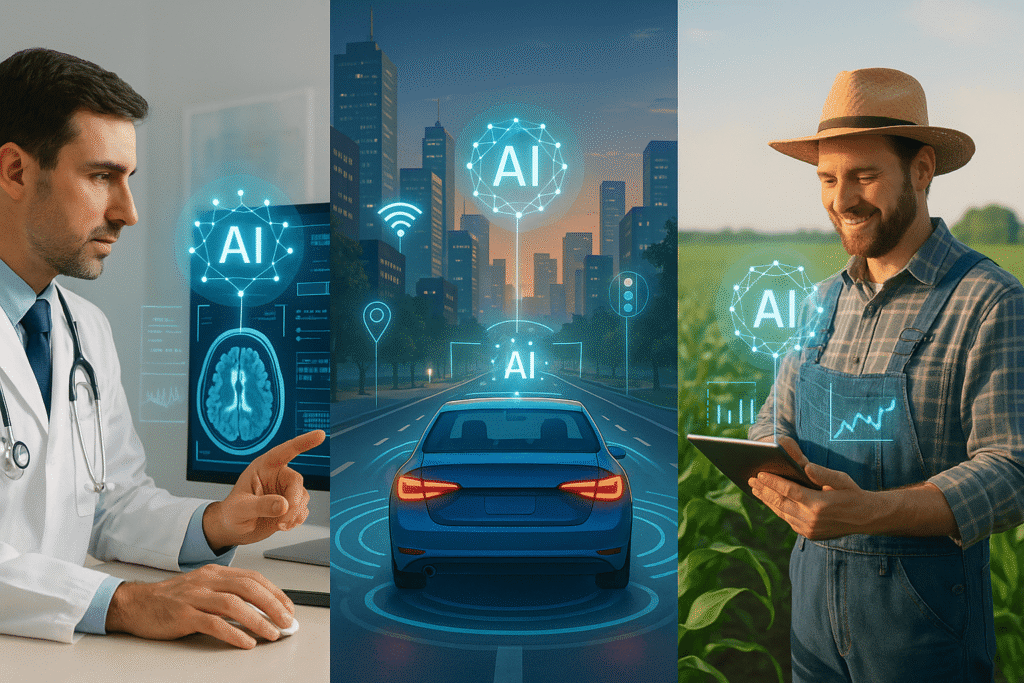
The effects of intelligent AI span nearly every sector. In healthcare, self-learning AI systems like AlphaFold are revolutionizing drug discovery by predicting protein structures in hours rather than years, cutting costs by up to a thousand-fold. Diagnostic tools powered by adaptive AI are already outperforming humans in detecting conditions like cancer and heart disease earlier and more reliably.
Transportation is also being redefined. Autonomous vehicles, powered by context-aware AI, analyze countless data points in real time to ensure safe navigation. Cities are adopting intelligent traffic management systems to reduce congestion and emissions, making urban life smoother and more sustainable.
Agriculture has embraced smart AI systems that detect crop diseases, optimize irrigation, and automate greenhouse operations. Climate research has also benefited, with AI-driven satellites monitoring pollution and environmental change more effectively than traditional methods.
In business and finance, intelligent AI is powering everything from high-frequency trading to personalized customer journeys. Predictive systems forecast demand, identify risks, and optimize supply chains. In education, cognitive AI tutors are personalizing learning experiences, ensuring that students receive tailored lessons. In manufacturing, predictive maintenance reduces downtime, while intelligent robotics work alongside humans to increase productivity.
The broader economic impact of intelligent AI is staggering. Analysts project it could contribute up to $20 trillion to the global economy by 2030. This growth will not only come from automating manual work but from enabling smarter decision-making and creating entirely new industries. Businesses that adopt next-generation AI systems are already seeing competitive advantages in speed, efficiency, and innovation.
This transformation also reshapes the workforce. Humans are shifting away from repetitive execution and toward strategic supervision. In this model:
Looking ahead, experts predict that by 2035, AI will become emotionally intelligent, able to detect moods, respond empathetically, and anticipate human needs. This evolution could make AI assistants feel more like intuitive partners than tools.
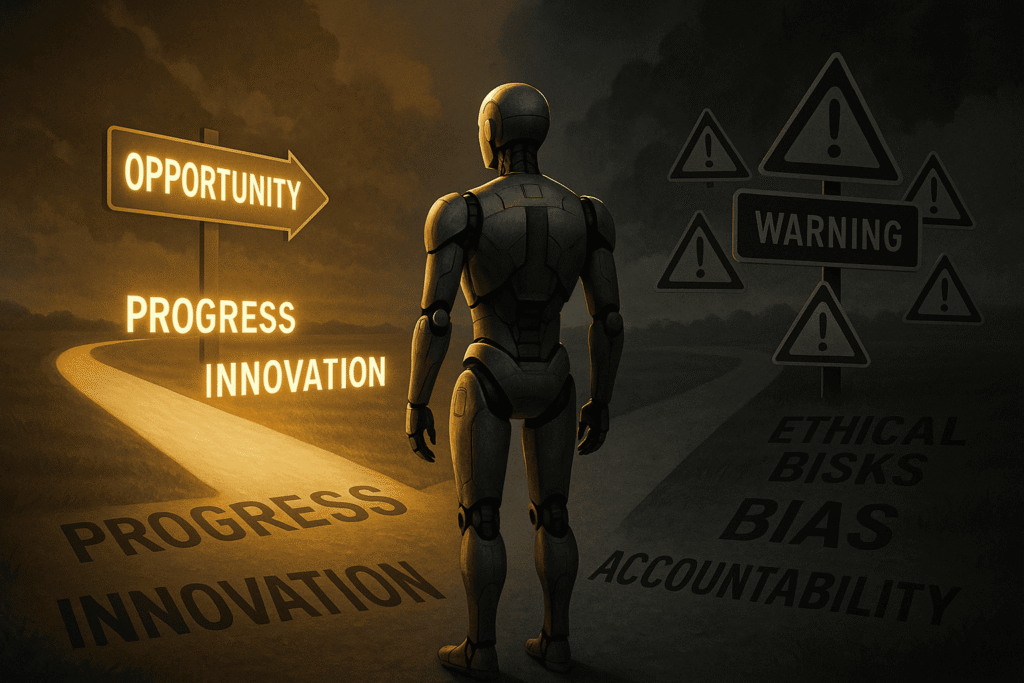
Despite its rapid progress, intelligent AI is still far from replicating human cognition fully. Meta’s AI chief scientist, Yann LeCun, emphasizes that current models lack persistent memory, deep reasoning skills, hierarchical planning, and true real-world understanding. These gaps mean even the most advanced adaptive AI systems sometimes make errors that a human would never commit.
Ethical concerns are just as pressing. Intelligent AI can reflect and amplify biases hidden in data. With greater autonomy, the issue of accountability becomes more urgent: if an AI makes a harmful decision, who is responsible? Governments and institutions are starting to respond with policies such as the EU’s AI Act and the GDPR’s right to explanation, but regulation is still playing catch-up with the pace of technological change.
The future of intelligent AI will be defined by its relationship with humans. It is not about replacement but augmentation. Doctors are diagnosing diseases more accurately, engineers are optimizing complex systems, and educators are personalizing lessons in ways that were unimaginable a decade ago. At the same time, society faces tough questions about how much autonomy to grant machines and how to ensure transparency and fairness.
As agentic AI becomes more capable, the line between assistant and co-worker will continue to blur. If developed responsibly, intelligent AI could deliver the greatest productivity leap in human history, freeing people to focus on creativity, empathy, and strategy. If mishandled, however, it risks widening inequalities and undermining trust in technology.
Intelligent AI is already reshaping the world, bringing transformative change to healthcare, business, education, and beyond. It learns, adapts, and increasingly acts on its own, making decisions that impact billions of lives. Yet its future hinges on how we guide its evolution. By addressing its limitations, ensuring transparency, and embedding ethics into its design, society can harness intelligent AI not just for efficiency and profit, but for the collective good.
The question is no longer whether intelligent AI will make an impact, it already has. The real challenge is ensuring that this smart, adaptive, and autonomous intelligence leads to a future that benefits everyone.
Ready to explore how Intelligent AI can transform your business processes and drive growth? Book a strategy session here and take the first step toward intelligent automation today.
Let us show you exactly where to start.
👉 Schedule a Free Automation Assessment
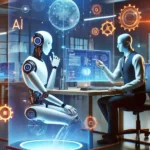
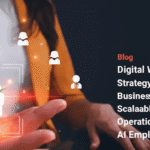
Welcome!
Meet your team of 24/7 AI Assistants. Each built to help your business run smarter and faster. Choose how you’d like to connect:
Call Mira - Your AI-Powered Voice Assistant
Reach out to Mira anytime at (817) 809-3820
for instant support and to see how AI and automation can transform...
your business. Mira can walk you through our services, answer questions, and even schedule a demo - all in real time.
Read more..
Talk Live with Nova - Your Online AI Voice Agent
Want a real conversation right here online? Nova can speak with you directly through your browser. No downloads...
, no wait times. Ask about automation, AI Employees, or how STA can streamline your operations. Nova is standing by for a one-on-one chat right now.
Read more..
Chat Instantly with Seren - Your AI Conversation Partner
Prefer to text? Seren is your instant connection for quick answers, resources, or a guided walkthrough of how we help businesses...
like yours automate and scale. Type your question and Seren will reply in real time.
Read more..
© 2026 ScaleThroughAutomation, All right reserved.